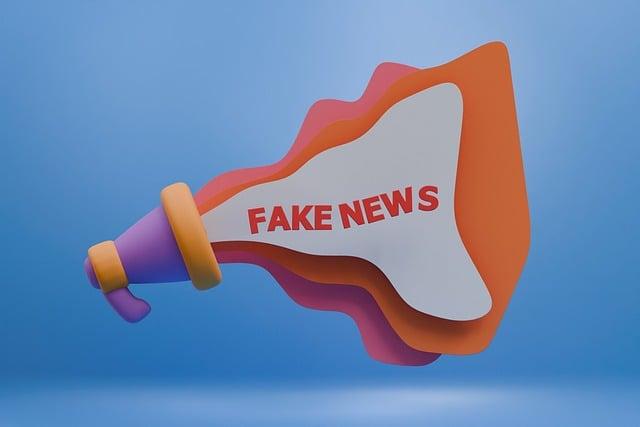In an age where information flows ceaselessly and opinions collide at every turn, the media stands as both beacon and battleground. Nowhere is this dichotomy more pronounced than in Pakistan, a nation rich in history yet fraught with complexities that shape its narrative. As the digital age redefines the parameters of news delivery, Pakistan’s media landscape grapples with the ever-evolving challenge of navigating truth amid a cacophony of voices. From the tug-of-war between state influence and journalistic integrity to the rise of digital platforms that blur the lines of accountability, the task is not merely to report but to discern, analyze, and present the truth in a manner that resonates with an increasingly discerning audience. This article delves into the multifaceted challenges faced by Pakistan’s media, examining the intricate balance between freedom of expression and social responsibility in a context where the stakes are high and the truths are often elusive.
Emerging Realities: Understanding the Impact of Disinformation on Public Trust
Disinformation has woven itself into the fabric of public discourse in Pakistan, distorting perceptions and eroding trust. The rapid proliferation of social media platforms allows misinformation to spread faster than factual reporting, creating an environment rife with skepticism toward traditional media outlets. As news consumers grapple with the overwhelming volume of information, they often struggle to discern fact from fiction. This underscores the urgent need for a resilient media landscape that is equipped to combat disinformation and restore public confidence. The challenge lies not only in accurately reporting events but also in educating the audience about the ways misinformation can be identified.
To address these challenges, several key strategies can be pursued by media organizations, government bodies, and civil society:
- Media Literacy Programs: Initiatives aimed at enhancing the public’s ability to critically evaluate information sources.
- Collaboration with Fact-Checkers: Media outlets can partner with independent fact-checking organizations to verify claims before publication.
- Transparency in Reporting: Encouraging journals to be open about their sources and methodologies can build trust in news production.
- Engagement with Audiences: Creating platforms for dialogue between journalists and community members can foster trust and understanding.

Balancing Act: The Role of Media Freedom in a Democratic Society
In a vibrant democracy, the media serves as both a watchdog and a platform for public discourse, but in Pakistan, this balance faces significant obstacles. Government censorship, political pressure, and threats to journalists contribute to an environment where media freedom struggles to thrive. This challenge leads to various implications such as:
- Suppressed Voices: Critical opinions are often silenced, limiting healthy debate.
- Self-Censorship: Journalists may preemptively avoid certain topics to escape repercussions.
- Information Manipulation: The dissemination of biased news erodes public trust in media institutions.
Moreover, the intertwining of media with political interests complicates its role. When news organizations align with political parties or state agendas, it obscures the truth and misrepresents public interests. This leads to a media landscape that is not only polarized but also lacking in diversity. The consequences are dire, as they can manifest in:
| Consequences | Description |
|---|---|
| Reduced Public Awareness | Citizens remain uninformed about critical issues. |
| Increased Polarization | Divergent narratives deepen societal divides. |
| Weak Democratic Processes | Erodes accountability and transparency. |

Tech Solutions: Harnessing Innovation to Combat Misinformation
In the age of information overload, leveraging cutting-edge technology is paramount for media platforms striving to uphold journalistic integrity. AI-driven fact-checking tools can significantly enhance the accuracy of news reporting by swiftly verifying claims against reputable sources. Moreover, blockchain technology offers a promising solution to establishing the authenticity of news by creating immutable records of content publication and revisions, thus ensuring transparency in the media supply chain. By integrating these innovations, Pakistan’s media can cultivate trust among its audience and mitigate the impacts of misinformation.
Furthermore, cultivating digital literacy is essential to equip the public with the skills necessary to discern credible information from false narratives. Initiatives such as interactive workshops and online courses can empower citizens to critically evaluate information sources. By employing augmented reality (AR) and virtual reality (VR) experiences, educational programs could engage users in immersive learning about the importance of media literacy. Such a multifaceted approach not only arms individuals with knowledge but also fosters a resilient societal discourse, essential for a thriving democratic environment.

Building Bridges: Fostering Collaboration Between Media and Civil Society for Ethical Reporting
The evolving landscape of media in Pakistan presents significant opportunities and challenges, particularly in fostering collaboration with civil society organizations. Effective partnership can enhance the quality of reporting by ensuring ethical standards are upheld, and voices from diverse communities are represented. Key initiatives that bridge these sectors include:
- Joint training programs aimed at improving media literacy among journalists.
- Collaborative workshops emphasizing ethical reporting practices.
- Platforms for dialogue between journalists and civil society actors to share insights and strategies.
Furthermore, creating robust reporting frameworks can facilitate transparency and accountability, essential for both media and civil society. A structured approach might include facilitating the following interactions:
| Activity | Description | Expected Outcome |
|---|---|---|
| Media Briefings | Regular sessions to inform journalists on civil society initiatives. | Informed reporting and deeper public understanding. |
| Research Collaborations | Joint studies that explore pressing social issues. | Data-driven narratives enhancing credibility. |
In Summary
As Pakistan’s media landscape continues to evolve, the quest for truth remains a formidable challenge. Journalists and news outlets find themselves at the crossroads of ethics, under the scrutiny of public, political, and commercial pressures. In this intricate dance, the commitment to journalistic integrity must persist, even as the nation grapples with the ramifications of misinformation and censorship.
Ultimately, the future of Pakistan’s media will depend on the resilience of its purveyors of truth and the engagement of its informed citizens. As the ripple effects of media narratives shape public discourse and influence policy, the onus lies on both media professionals and the audience to foster an environment where facts can flourish amidst the chaos.
In navigating this complex terrain, Pakistan stands at a pivotal moment – one where the commitment to transparency, accountability, and ethical reporting can either fortify its democratic foundations or lead to further fragmentation. As the nation forges ahead, the dialogue surrounding truth must remain open, dynamic, and above all, rooted in the collective hope for a more informed and engaged society. Thus, while the journey through Pakistan’s media landscape may be fraught with challenges, it is also rich with potential for transformation and renewal.



